Click to Skip Ahead
Spreading jelly on your morning toast or putting it in a sandwich is an easy, delicious way to make a quick meal taste good without too much work. Food, no matter what it is, is always bound to capture a cat’s attention. If they see you eating a jelly sandwich, they’ll want a taste too.
Jelly isn’t a recommended snack for your cat due to the high sugar content. Moreover, some flavors might be toxic. If your cat steals a bite of strawberry jelly when you’re not looking, they’ll likely be completely fine. However, other flavors should be completely avoided, like grape jelly. This guide will explain why.

Is Jelly Healthy for Cats?
Although jelly isn’t outright toxic to your cat, it doesn’t contain the nutrients that your cat needs to stay healthy. Many jelly recipes also contain a large amount of sugar to counteract the bitterness of some fruits that are used in the production process.
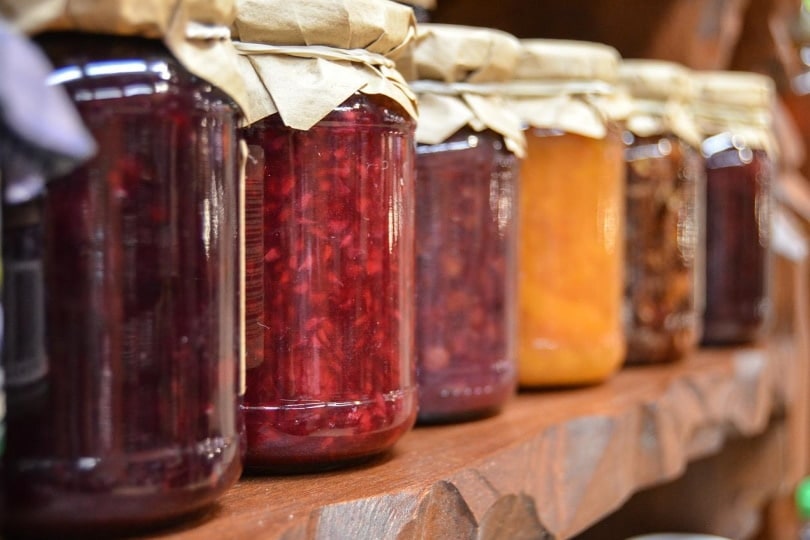
Lack of Nutrients
Cats are similar to dogs in many ways. They’re furry, four-legged companions that adore cuddles, playtime, and snacks. Food, however, is where these pets differ. Unlike dogs, whose diets are a little bit more flexible, cats require a strictly meat-based diet to stay healthy.
As strict, or obligate, carnivores, cats gain most of their nutritional requirements from animal protein. They can benefit from a small portion of fruits and veggies as snacks, but ultimately, it’s meat that keeps our felines going.
Jelly, jam, and preserves are made from fruit. While cats can benefit from the antioxidants and vitamins in certain fruits, they can’t survive solely on this food. Their bodies don’t turn plant protein into the amino acids that they need to survive as well as the bodies of dogs or other animals can. This is why a meat-based diet is so important.
Sugar Content
Sugar is a common ingredient in many human-made foods, and jelly is no exception. The sugar content is one of the biggest reasons that you shouldn’t let your cat steal jelly from your sandwich. Too much sugar over a long time can lead to issues like obesity, which can increase the risk of your cat developing diabetes, cancer, heart disease, and other serious health conditions.

Can Cats Eat Grape Jelly?
For dogs, grapes and raisins are toxic and can cause kidney failure. The same might be true for cats, but this concern is less well known, probably because cats are less likely to want to eat grapes in the first place.
In the end, it’s safer not to take the risk. While some cats might be fine with a grape or even grape jelly, others might become seriously sick, and there’s no way of telling whether a cat will be fine until they’ve eaten a few.
When it comes to the health of our cats, grapes are just not worth the risk. Therefore, it’s best to avoid anything to do with grapes when it comes to your feline or canine companions. It’s better to be safe than sorry.
If you do catch your cat eating grapes, err on the side of caution and bring your cat to the veterinarian as soon as possible. This will increase the chances of a successful treatment.

If you need to speak with a vet but can’t get to one, head over to PangoVet. It’s an online service where you can talk to a vet online and get the personalized advice you need for your pet — all at an affordable price!
Can Cats Eat Orange Jelly?
Another jelly or jam flavor of concern might be orange jelly. Citrus essential oils are toxic to cats. Many orange jellies and marmalades include orange peels in their recipes and preparations. While this might make the jelly smell and taste delicious to you, your cat will likely dislike the smell and might end up experiencing vomit and diarrhea if they consume it.
Err on the side of caution and avoid feeding your cat any orange jelly or marmalade.
Which Flavors of Jelly Can Cats Eat?
Jelly might not be the healthiest treat for your cat, but there are a few flavors that are safe for your cat to try. Your cat can benefit from the health boosts offered by strawberries, raspberries, and blueberries. They can also eat apricots, provided that the pit is removed.
Although jam or jelly made from these fruits is safe, cats cannot taste sweet things, so they are better avoided. You also need to bear in mind jelly’s sugar content. Sharing a whole blueberry, strawberry, or raspberry with your cat instead of jelly is a healthier option.
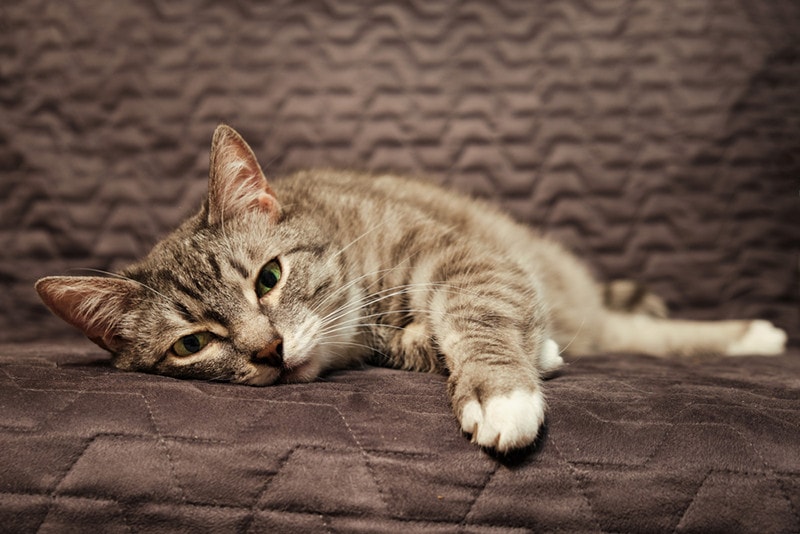

Can Cats Eat Sugar-Free Jelly?
With sugar being the biggest health risk when it comes to your cat eating jelly, it’s an easy assumption that sugar-free jelly is perfectly safe for your feline. This isn’t always the case. Commercial sugar-free jelly usually includes a sugar alternative to sweeten the product.
Xylitol, a common sugar alternative, is a well-known cause of liver failure in dogs. The threat to cats is less certain, but the risk isn’t worth it.
Unless you made the jelly yourself from fresh fruit and didn’t put any sugar or sugar alternatives in at all, it’s best to avoid giving any to your cat.
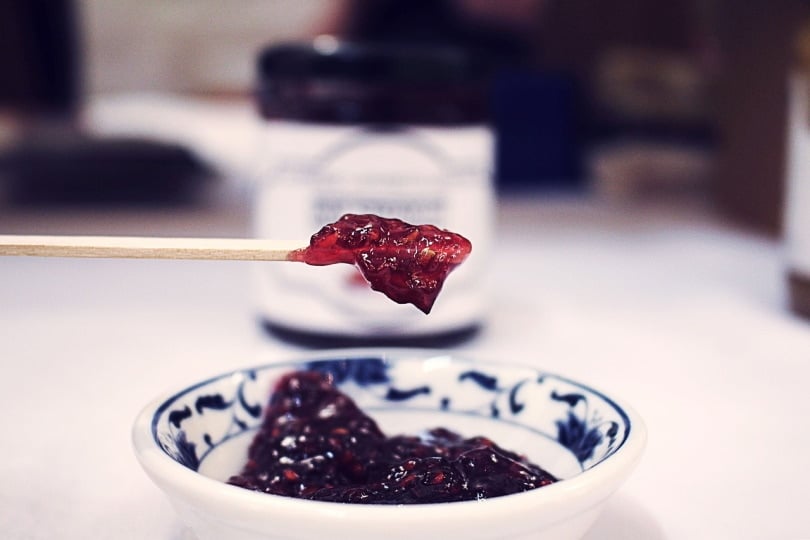
Do Cats Like Jelly?
In all honesty, your cat might not like to eat jelly due to the flavor and the texture. They can’t taste sweet things, which is a major selling point of jelly. If your cat doesn’t like jelly, they’re unlikely to want to eat it.
If your kitty enjoys the texture, though, that’s when you need to pay attention to how much they eat. A few licks on rare occasions — not nearly enough to be part of your cat’s regular diet — should be fine.

Final Thoughts
In moderation, jelly isn’t toxic to your cat unless it’s made from grapes. If you catch them licking strawberry jam off your toast when you’re not looking, there’s no reason to panic. There’s a slight chance that ingesting it will cause stomach upset, but your cat should be okay.
If your cat does sneak a bite when you’re distracted, keep an eye on them for at least 24 hours. This will help you catch any early warning signs of any adverse reactions or stomach upsets. Provided that they didn’t eat much, though, your cat should be fine.

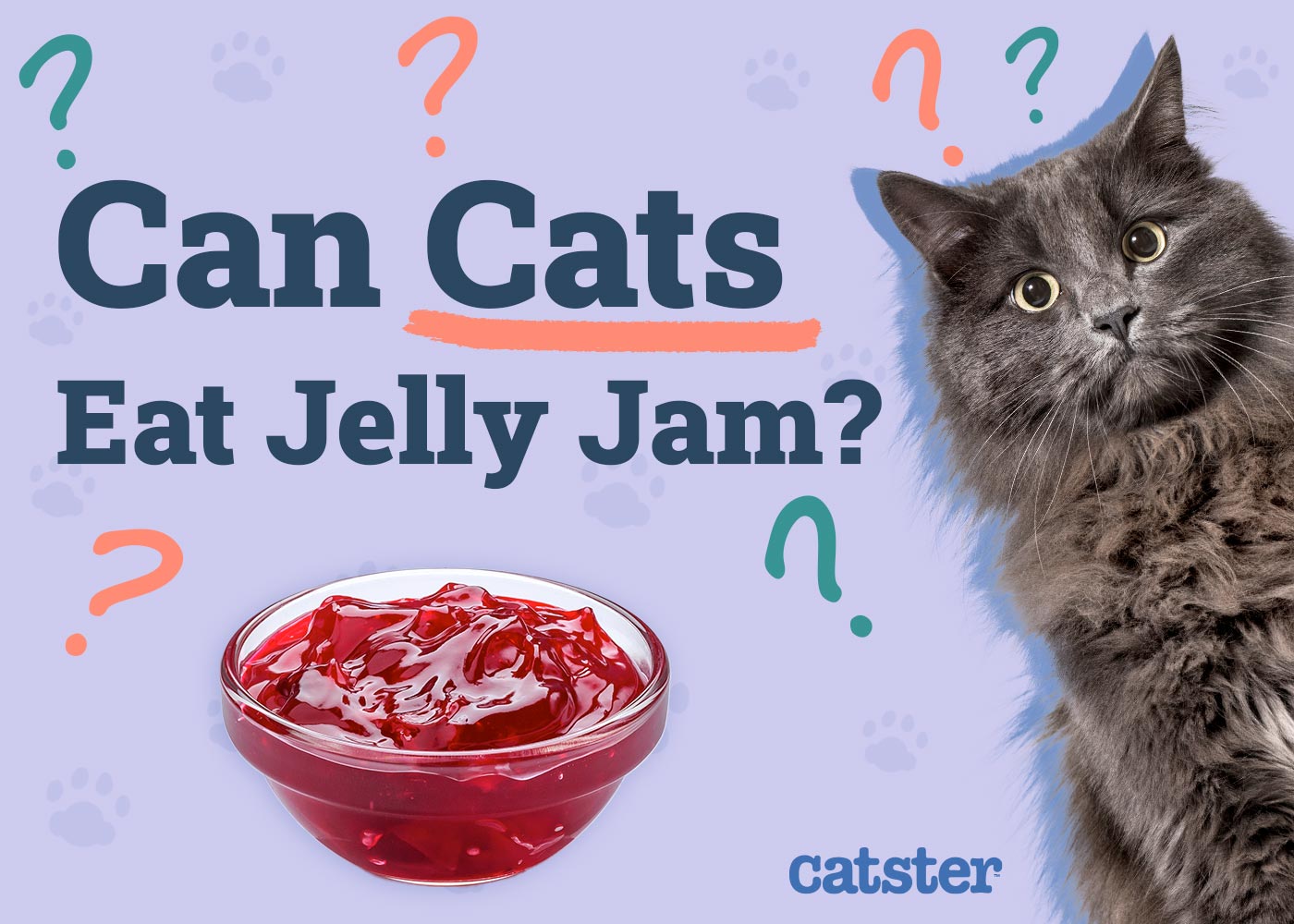
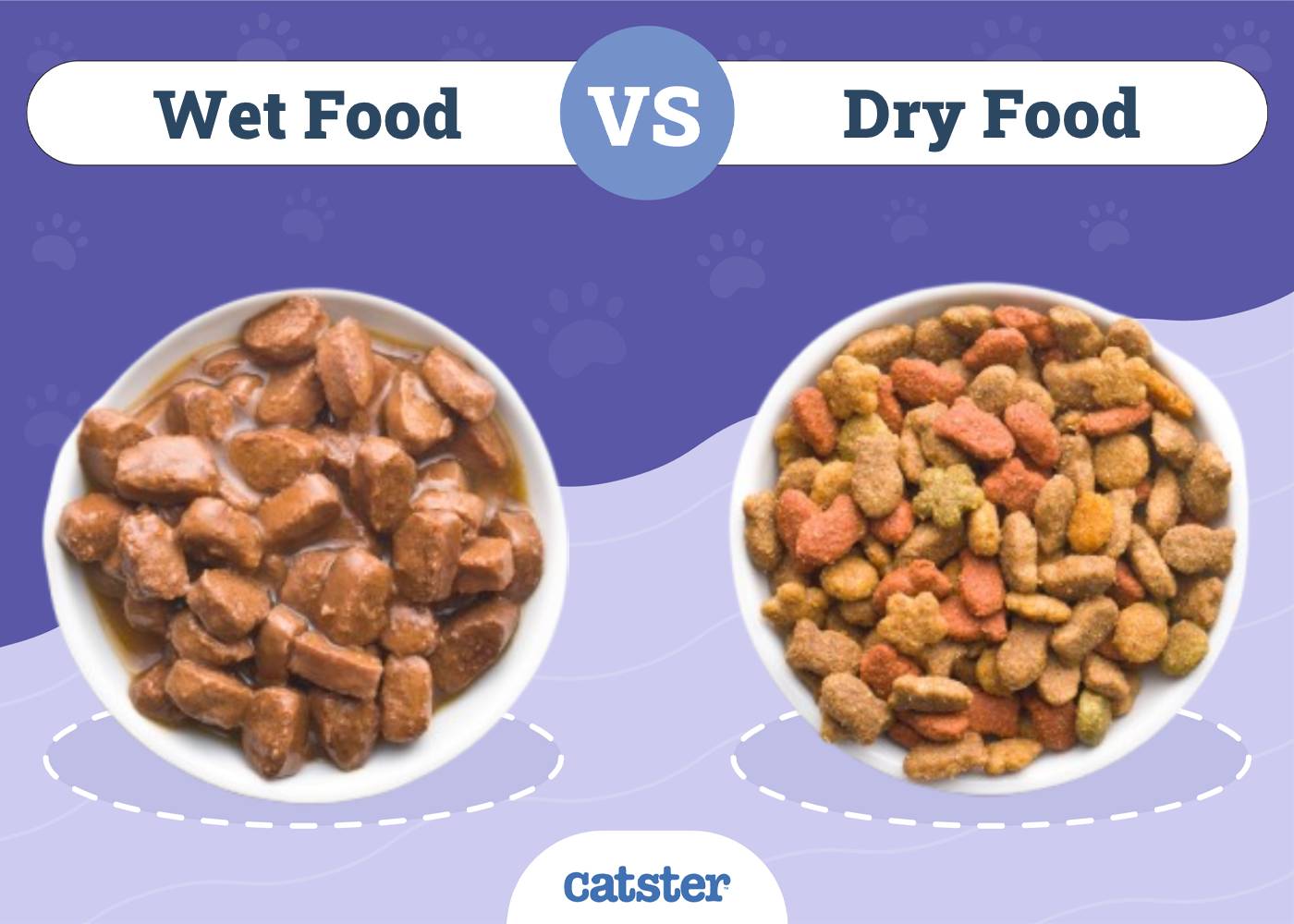
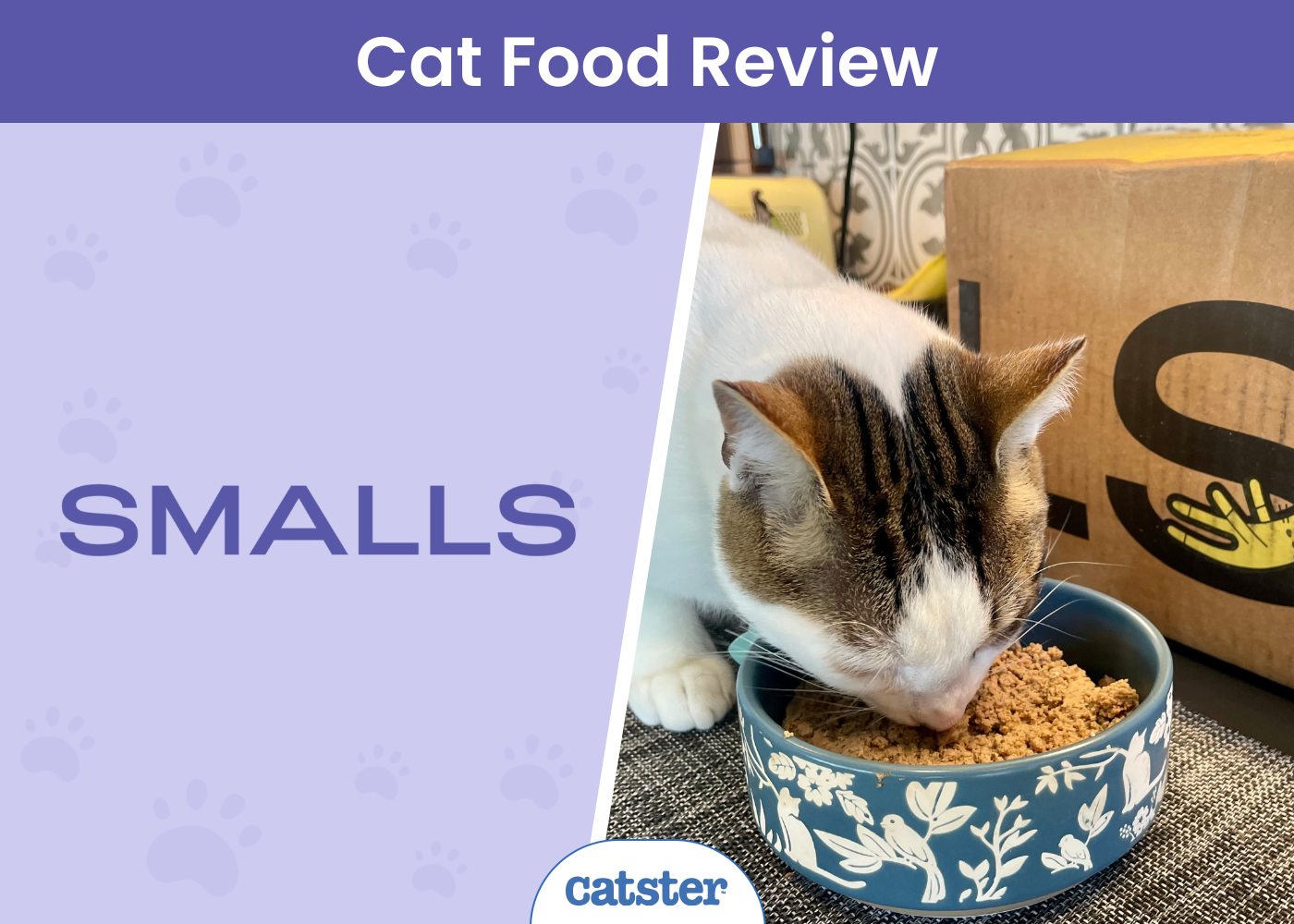
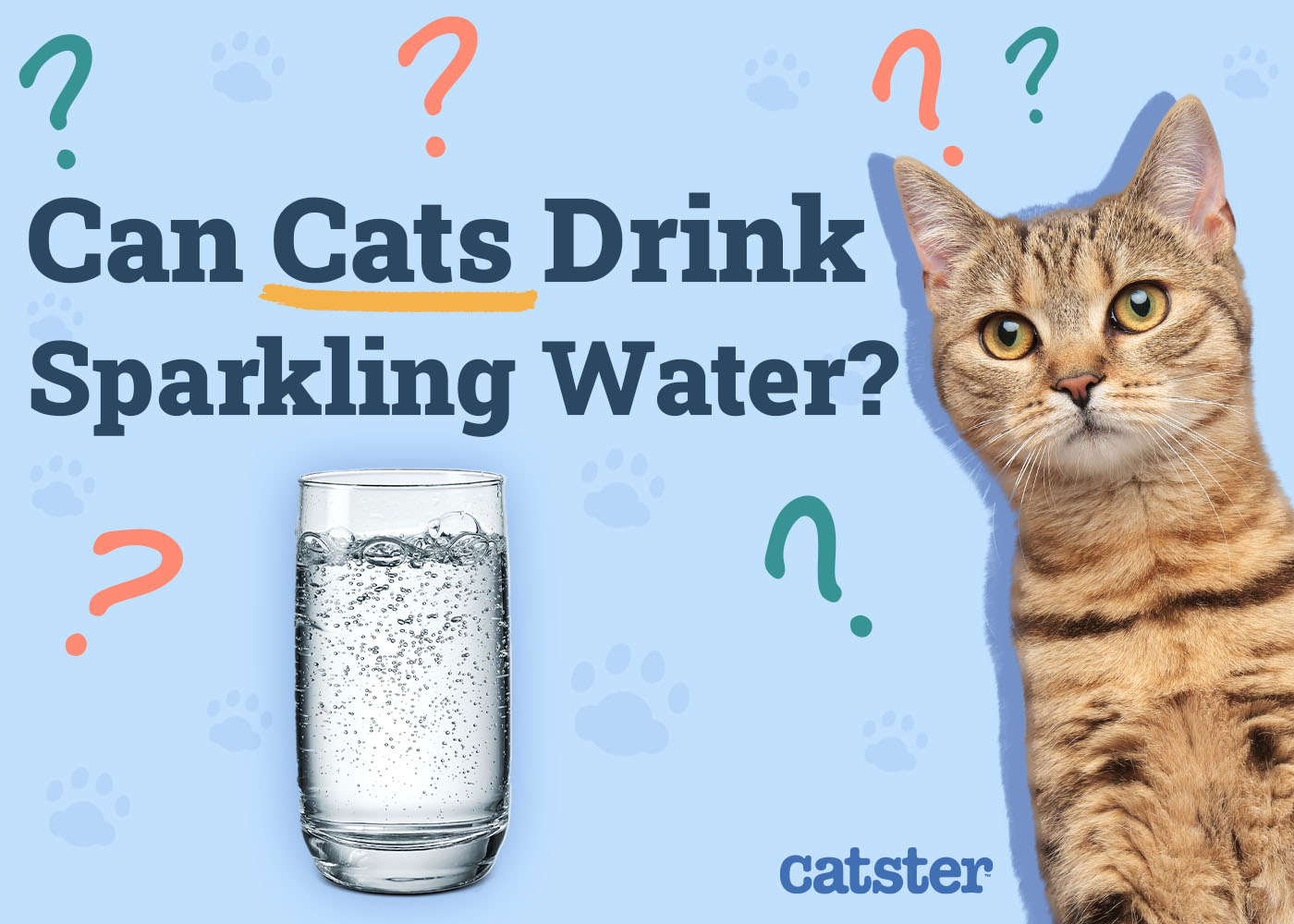




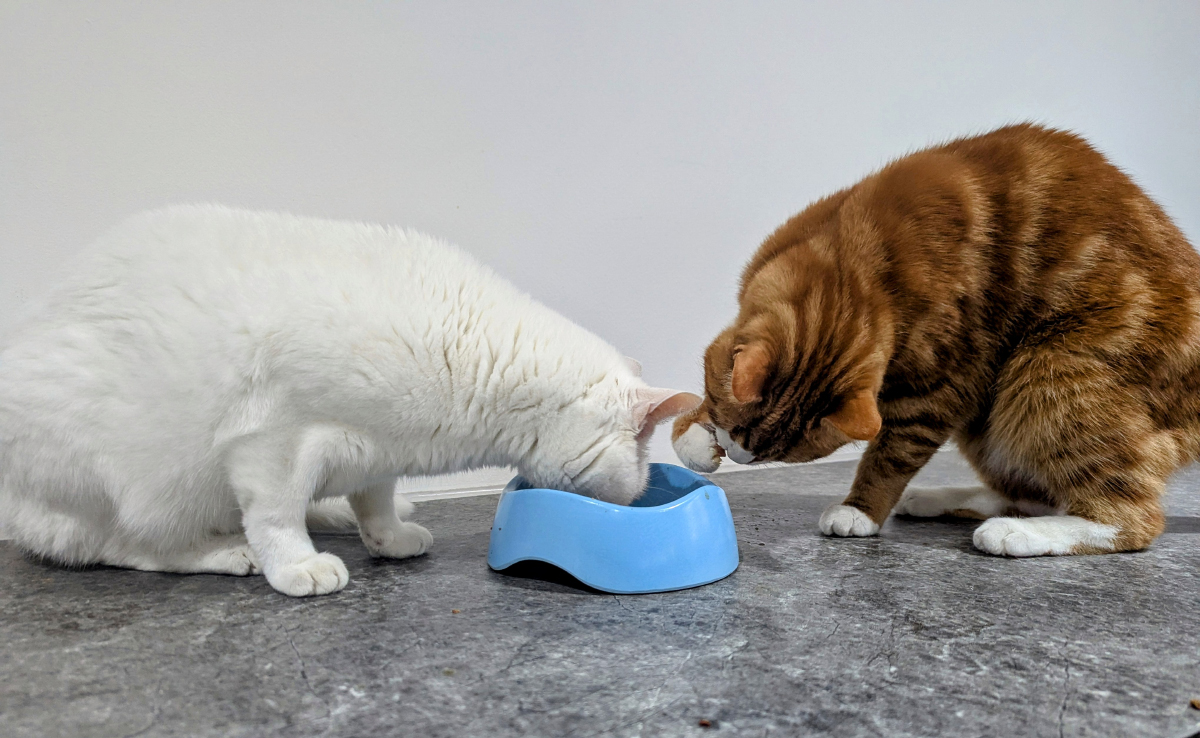
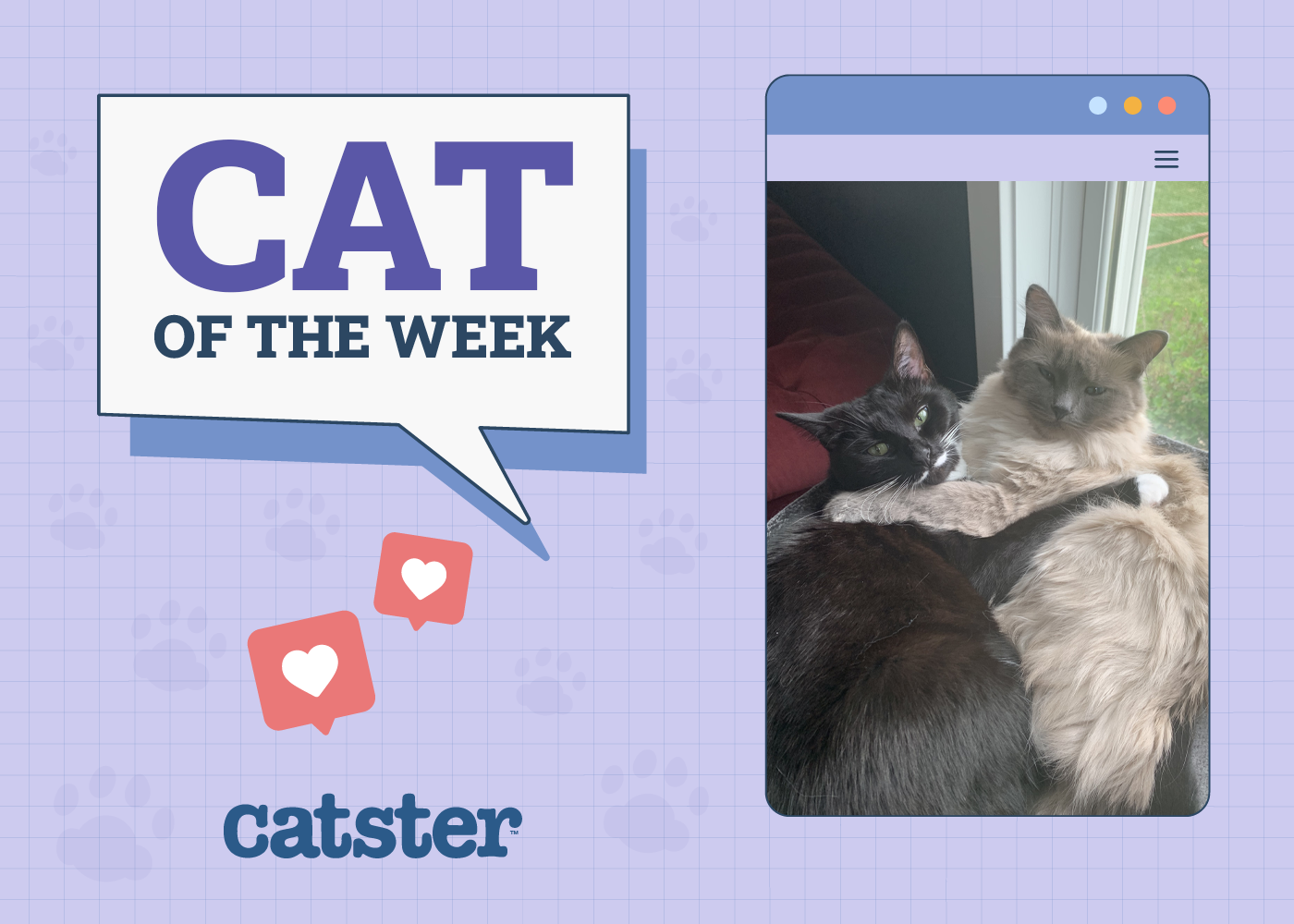
Hi well .
We have 7 cats one of them Munster absolutely adoes Marmalade he will chase me around to get some he never get sick but woe betide me if i eat marmalade on anything without him getting some
Hi Pete, thanks for reading us. Yes, cats can quickly learn to snatch their humans' food, but this is not great for their health; especially long term.